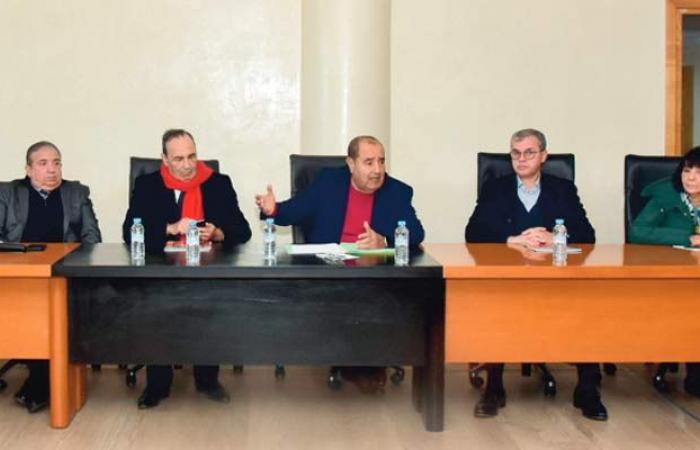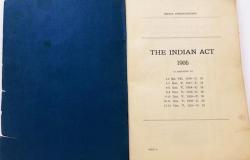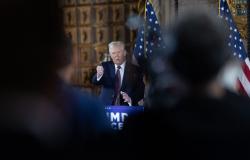
“From management to change”, this Royal motto must serve as a watchword to be applied at all levels
In a constantly changing world, the warnings of Driss Lachguar, First Secretary of the USFP, resonate as an urgent call for reflection and action. Saturday, during a meeting with the party’s regional and provincial secretaries, the Ittihadi leader painted a lucid and worrying picture of the decade to come, emphasizing the importance of a bold strategic vision to face the impending international and national challenges. He notably called for a strategic overhaul of Moroccan policies, citing both economic and diplomatic challenges.
Driss Lachguar highlighted a key point: the next ten years will be decisive, marked by profound transformations on the international scene. Referring to the re-election of Donald Trump, he underlined the major repercussions that such an event will have on the geopolitical balance. “The re-election of Trump will lead to a reorganization of many issues on the international scene and Morocco will be directly involved,” he warned. For him, “the protectionist policies of the Trump era, combined with increased strategic rivalry between the United States and China, could transform global balances.” In this context, he insisted on the urgency of a clear strategic vision. “The future situation does not exonerate the government from responding to the question of a new strategic vision that the world is discovering,” he said, urging Moroccan authorities to prepare for these upheavals.
While welcoming Morocco’s economic and diplomatic successes, acquired in particular thanks to the “enlightened guidance of His Majesty the King”, Driss Lachguar warned against self-satisfaction. He thus criticized the government which limits itself to “celebrating and exhibiting” achievements without providing lasting solutions to structural challenges. “We must go beyond celebratory speeches and start working on the major reforms necessary to prepare for the next twenty years,” he stressed.
Among these challenges, growing food dependence takes center stage. The First Secretary recalled a disturbing reality: “We no longer import only wheat, but also a large part of our food, notably white and red meats as well as oils”. This observation, according to him, illustrates an economic vulnerability that it is urgent to correct through bold policies and a real transformation of the Moroccan economic fabric.
For Driss Lachguar, Morocco must now enter a new era. Citing the Royal motto “From management to change”, he urged decision-makers to make it a watchword applicable at all levels. “We have moved from a management phase to a change phase,” he insisted, calling for a complete overhaul of strategic approaches. In this perspective, he argued that the government must not only preserve the Royal achievements but develop them within the framework of a “concrete program for the year 2025”. For him, this deadline must mark a decisive turning point in the construction of a resilient and prosperous Morocco.
On the political front, Lachguar has expressed outspoken criticism against the lack of dialogue between the government and the opposition, which he attributes to the “hegemonism of the government majority.” According to him, this lack of consultation weakens the country’s capacity to respond to major challenges. “Defending the nation relies on a real strength, that of democracy,” he declared insistently. He thus called for opening a debate on political reforms, particularly electoral laws. “We cannot repeat the same elections as in the past,” he warned, insisting on the need to strengthen the foundations of Moroccan democracy to support the transformations to come.
He also called for better preparation for electoral events and mobilization of partisan forces. “We must make 2025 a year of openness to citizens of all social categories,” he suggested, emphasizing the imperative to “mobilize national energies for responsible patriotic action.”
Among the priorities mentioned by Driss Lachguar is the cultural dimension, which he considers to be a fundamental pillar for the development of Morocco. “We must make 2025 the year of the cultural question in Morocco,” he declared, suggesting the organization of a major national forum to collectively reflect on cultural challenges.
For him, culture plays an essential role in strengthening national identity and in promoting social dialogue. Through this initiative, he aspires to mobilize intellectuals, artists and thinkers to shape a more inclusive and open Morocco.
The USFP leader concluded his speech on a firm note, warning against political excesses which distract attention from the real issues. “Our country is facing immense challenges, and we will not tolerate anyone dragging us into futile political controversies or unimportant issues,” he warned forcefully. This declaration reflects the USFP’s commitment to focus on the essential: preparing Morocco for the challenges of the next decade, in a rapidly changing world.
Concerning the Commission’s proposals on the reform of the Moudawana (Family Code), Driss Lachguar described them as “an acceptable minimum” and urged the government to engage without delay in their implementation. “We, within the USFP, consider that what was presented by the Commission constitutes the minimum threshold and it is up to the government to apply it,” he insisted.
For the First Secretary, the revision of the Family Code is not limited to a legal adjustment. It represents a cornerstone in the fight for equity and equality, and a necessary step to support the social changes in Morocco. This reform, according to him, is essential to strengthen women’s rights and ensure social justice that meets the legitimate aspirations of the Moroccan people. He also praised the mobilization of USFP executives, men, women and young people, for their commitment to the work which made it possible to advance this crucial issue. “What we have accomplished around the issue of Moudawana and women’s rights is unprecedented in the history of our party since the time when the martyr Mehdi Ben Barka chaired the conference of the Three Continents before his tragic kidnapping,” he said. he recalled, while paying tribute to the collective efforts.
“Today, we must use this momentum to achieve even more successes for our country and our people,” he stressed, thus considering the reform of the Moudawana as a crucial element of the democratic and social future of the Morocco.
Through this speech, Driss Lachguar recalled the urgency of collective and concerted action to build a future that meets Moroccan aspirations. By emphasizing the need for a transition towards change, he not only warned against the dangers of inaction, but also opened the way for in-depth reflection on the role that Morocco must play in global transformations. future. For him, the message is clear: “the next ten years are not inevitable, but an opportunity to be seized.”
Mehdi Ouassat





